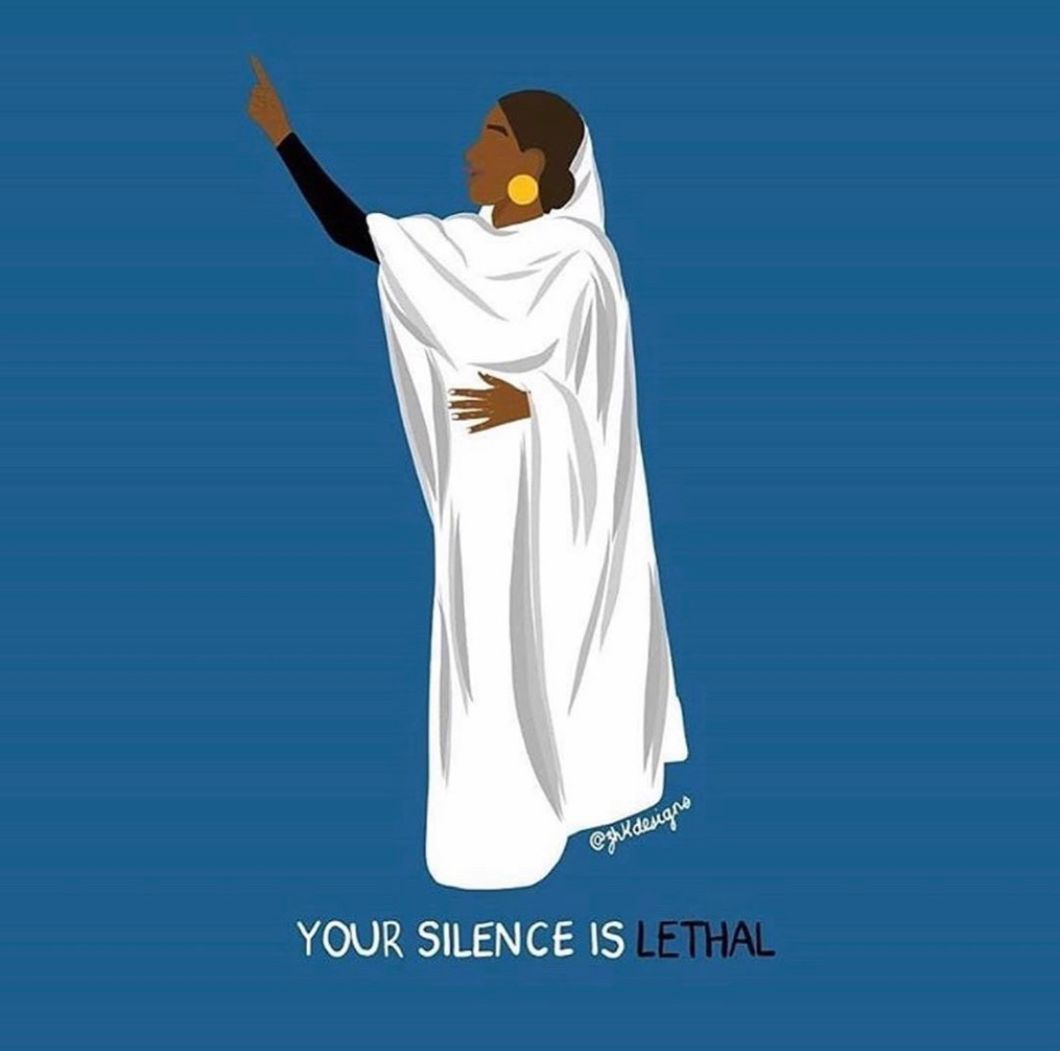Four days ago I was scrolling through my explore page on Instagram when I noticed the plethora of blue profile pictures dotting my feed. At first, I thought my WiFi was just being slow or that the app had a glitch, but after further scrolling, I learned about the crisis that's taking place in Sudan. While I do get a considerable amount of news updates from social media, I was caught somewhere between surprised and appalled that a photo-sharing app is the first place that I heard about the Sudan massacre.
After years of political unrest and months of civil protests, the group known as the Rapid Support Forces (RSF) began attacking protesters on June third and have continued the onslaught against civilians. The Sudanese government is censoring media with an internet blackout with the intent to end the mass protests. The people of Sudan are suffering unspeakable crimes against humanity and have no way voice their own struggle.
The impact of social media has been proven time and again, but I want to stress it's significance in the role it has on the crisis in Sudan.
As everyday social media users, we forget how much freedom we have. We rant about the things we dislike, we can choose to ignore people that don't agree with us, and we can find nearly anything you can imagine with a few swipes and the tap of a thumb. The people of Sudan are enduring civil war and can't so much as describe what they're living through to anyone who isn't already suffering it with them.
I know that the online culture of hashtags in support of cause without any action behind it can seem like nothing short artificial, however, had it not been for some of the influencers I follow replacing their profile pictures with the blue icon and posting information about Sudan on their stories, I would likely still be scrolling through my feed oblivious to my own privilege.
I implore anyone that might stumble across this article not to let this conversation end with #SudanStrong, keep it alive for the people who still are. Our silence is not only hurtful to those who need us but lethal. Our collective voices can move our leaders to act in ways bigger than any single one could.






















